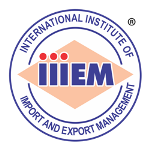
In today’s global business world, sending effective emails has become crucial for success.
Writing compelling and influential emails is no longer just a formality; it’s a vital skill that can greatly affect a company’s growth and profitability.
As the world becomes more interconnected, with diverse cultures and languages coming together, poorly written emails can hurt business opportunities, damage relationships, and even undermine promising ventures.
Throughout this guide, we embark on a journey to unravel the secrets of writing more effective emails for export import business. Whether you are a seasoned entrepreneur or an aspiring global trader, this guide aims to equip you with the tools and insights to master the art of cross-cultural communication.
- Understanding Cultural Differences in Email Communication
When engaging in the export-import business, it’s essential to be mindful of cultural differences that may influence email communication. Different regions have varying communication styles, norms, and values. Understanding and respecting their culture is crucial for building strong and fruitful relationships with international partners.
To achieve effective communication, take the time to research and learn about the cultural backgrounds of your recipients. Familiarize yourself with their communication preferences, hierarchy, and etiquette. For example, some cultures prioritize formal language and titles, while others appreciate a more casual tone.
By being culturally sensitive in your email communication, you can avoid misunderstandings and demonstrate respect for your recipients’ cultural practices.
- Crafting a Clear and Concise Subject Line
The subject line is the first thing recipients see when your email lands in their inbox. In export-import business, where people may receive numerous emails in different languages, a clear and concise subject line is essential to capture their attention.
To create an effective subject line, make sure it accurately reflects the content of your email. Be clear and straightforward in your subject lines to prevent your email from being ignored or flagged as spam. Instead, focus on using relevant keywords that resonate with your recipients and pique their interest.
A well-crafted subject line can significantly increase the open rate of your email, enabling you to communicate your message effectively.
- Emphasizing Clarity in Message Body
When composing the body of your email, prioritize clarity and simplicity. Avoid using complex jargon or colloquialisms that may not be understood by recipients from different linguistic backgrounds.
Start with a friendly greeting and introduce yourself if necessary, especially when communicating with new contacts. Clearly state the purpose of your email and provide any essential context or background information to ensure recipients can grasp the message easily.
Break down your main points into short paragraphs with clear headings, making it easier for recipients to follow the flow of your email. Consider using bullet points to present information concisely.
- Addressing Language and Translation Challenges
Language barriers can pose challenges in international email communication. While English is often used as a lingua franca in business, not all recipients may be proficient in it. As a result, misunderstandings can occur if messages are not clear or properly translated.
When communicating in a language that is not your recipient’s native tongue, use simple language. Avoid using idioms, colloquial expressions, or slang that might be confusing or lost in translation.
If you are uncertain about the accuracy of the translation, consider using reliable translation tools or professional translators to ensure your message is conveyed accurately.
- Adapting to Time Zone Differences
Time zone differences can impact the timeliness of your email responses and coordination with international partners. Being conscious of these differences can enhance the efficiency of your communication.
Before sending emails, identify the time zones of your recipients and schedule your messages to arrive during their regular business hours. If you are responding to emails from different time zones, acknowledge any potential delays in your reply and assure recipients that you will respond promptly.
- Avoiding Cultural Misunderstandings and Offenses
Cultural misunderstandings can harm business relationships. Be mindful of cultural norms regarding gestures, humor, and sensitive topics that might differ across regions.
Avoid assumptions about cultural practices and remain open to learning from your international partners. When in doubt, ask for clarification or research cultural norms to ensure your email communication is respectful and considerate.
- Incorporating Visuals and Contextual Cues
Incorporating visuals and contextual cues in your emails can enhance understanding and engagement. Images, charts, and infographics can help convey complex information more effectively, especially when language barriers may exist.
However, be cautious not to overload your email with visuals, as large attachments or images can lead to delivery issues or slow loading times.
- Politeness and Diplomacy in International Email Etiquette
Politeness and diplomacy are universal traits appreciated in all cultures. Use courteous language, expressions of gratitude, and acknowledgments of your recipients’ time and efforts.
Avoid using overly direct language that might be perceived as rude or demanding. Instead, respectfully frame your requests, leaving room for recipients to respond positively.
- Proofreading and Editing for Precision
In international business, clear and error-free communication is essential. Before sending an email, meticulously proofread and edit it to eliminate typos, grammatical errors, and inaccuracies.
A poorly written email reflects poorly on your professionalism and may undermine the credibility of your message. Take the time to review your email carefully, and if possible, ask a colleague or language expert to review it as well.
- Establishing Follow-up Protocols
Following up on email communication is crucial for nurturing business relationships and ensuring your messages are not lost amidst a busy inbox.
After sending an important email, establish follow-up protocols to track responses or actions needed from recipients. If you haven’t received a response within a reasonable time, consider sending a friendly follow-up email to check the status.
By demonstrating attentiveness and commitment to communication, you can maintain fruitful relationships with your international partners.
Effective email communication is an indispensable skill for international business success. By understanding and respecting cultural differences, crafting compelling subject lines, emphasizing clarity, and addressing language challenges, you can improve the impact of your email correspondence across diverse regions.
As you strive to excel in the global marketplace, consider complementing your email communication skills with Import-Export Certification Courses. These courses offer valuable insights into international trade practices, regulations, and marketing strategies, empowering you to thrive in the competitive world of global business.
By incorporating the strategies discussed in this guide and leveraging the knowledge gained from certification courses, you can elevate your international email communication and foster enduring partnerships with partners worldwide.
